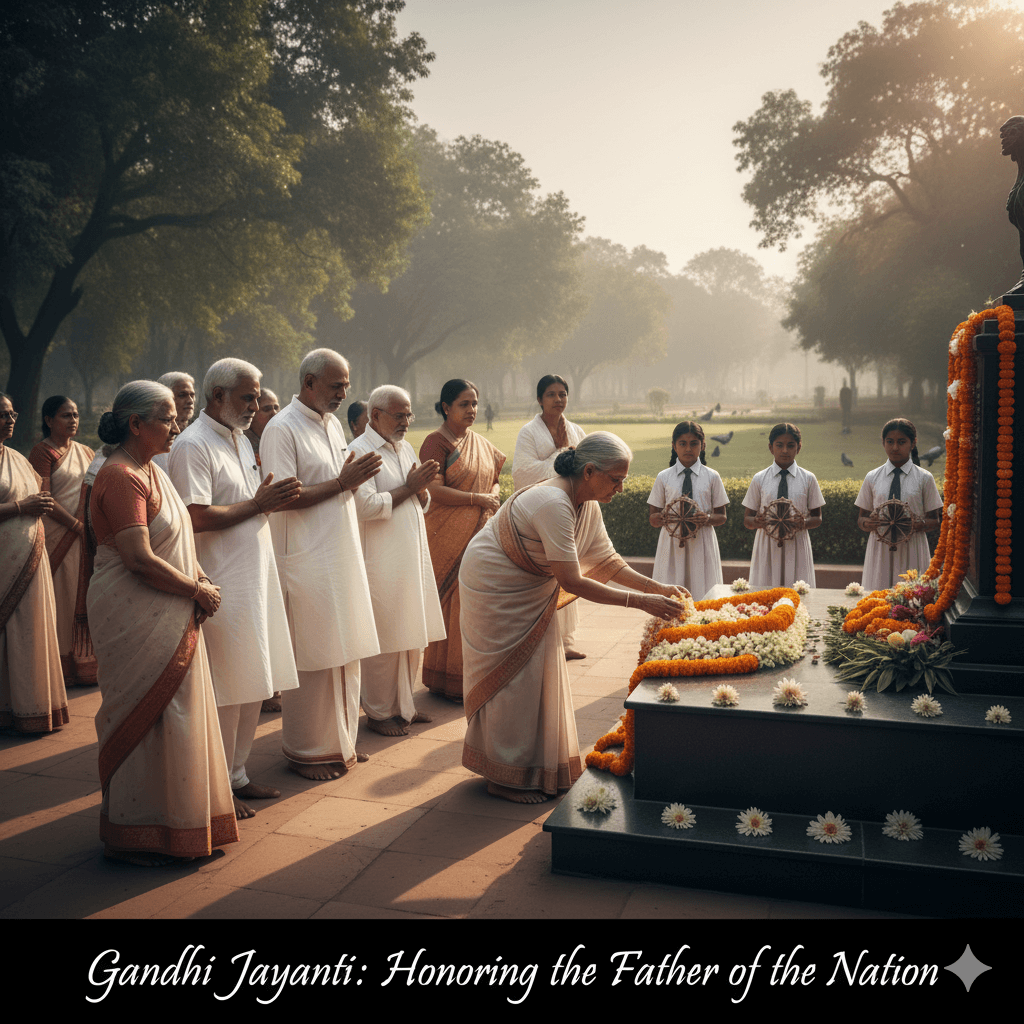Gandhi Jayanti, celebrated on October 2nd every year, marks the birth anniversary of Mahatma Gandhi, the Father of the Nation in India. This day is a national holiday in India and is observed with great reverence and enthusiasm across the country. Let’s explore the significance of Gandhi Jayanti and how it is celebrated.
The Significance of Gandhi Jayanti
Mahatma Gandhi, born Mohandas Karamchand Gandhi, was a pivotal figure in India’s struggle for independence from British rule. His principles of non-violence (Ahimsa) and truth (Satya) inspired movements for civil rights and freedom across the world. Gandhi Jayanti is a day to honor his legacy, his contributions to Indian society, and his impact on global peace and non-violence movements.
Celebrations and Tributes
Gandhi Jayanti is celebrated with various events and activities that reflect Mahatma Gandhi’s values and teachings. Some of the key celebrations include:
1. Prayer Meetings: Prayer meetings are held at Gandhi’s memorials, including Raj Ghat in New Delhi, where people gather to pay their respects and reflect on his teachings.
2. Tributes and Wreath-Laying: Leaders and citizens pay tributes to Mahatma Gandhi by laying wreaths at his memorials and statues.
3. Spinning and Craft Activities: In line with Gandhi’s emphasis on self-reliance and khadi (hand-spun cotton), spinning and craft activities are organized in many places.
4. Essays and Competitions: Schools and colleges often organize essay writing, art, and other competitions to educate young people about Gandhi’s life and principles.
5. Community Service: Many people engage in community service activities, such as cleaning public places, promoting environmental sustainability, and helping the needy, in honor of Gandhi’s values.
The Importance of Gandhi Jayanti
Gandhi Jayanti is not just a celebration of Mahatma Gandhi’s birth; it is a reminder of his enduring legacy and the values he stood for. The day emphasizes the importance of:
– Non-Violence and Peace: Gandhi’s philosophy of non-violence (Ahimsa) is a powerful message for the world, promoting peace and conflict resolution through non-violent means.
– Truth and Integrity: Gandhi’s commitment to truth and integrity serves as an inspiration for individuals to lead honest and principled lives.
– Social Justice and Equality: Gandhi’s efforts to eradicate untouchability and promote social equality remind us of the importance of fighting against social injustices and promoting inclusivity.
Conclusion
Gandhi Jayanti is a day to reflect on Mahatma Gandhi’s teachings and their relevance in today’s world. As we celebrate his life and legacy, let us also strive to embody his values of non-violence, truth, and social justice. May Mahatma Gandhi’s principles guide us in building a more peaceful, just, and compassionate society.


